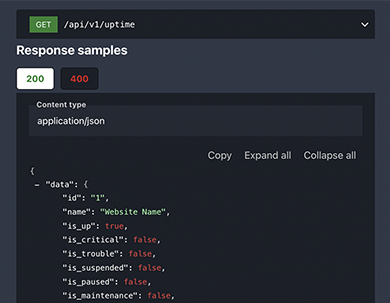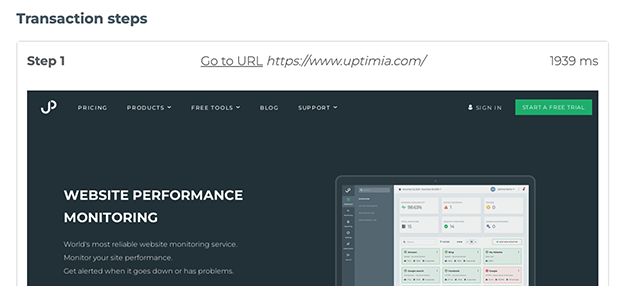Frequently asked questions
What is Website Forms Monitoring?
Website Forms Monitoring is a service that allows you to monitor the health of your website forms, such as logins, sign-ups, and checkouts. It simulates website form actions and sends alerts if they do not work as intended.
How do I get started with Website Forms Monitoring?
Getting started is quick and easy. Simply sign up by providing your name, email, and password, then use our user-friendly tool to create a web transaction and specify the steps for Uptimia to follow.
What types of forms can be monitored?
You can monitor a variety of web applications, including sign-in/sign-up forms, e-commerce shopping carts, checkout processes, and any other functionality crucial for seamless operation.
How many steps can be included in a transaction?
You can configure transactions with up to 20 steps for comprehensive application monitoring.
How does Uptimia avoid false alerts?
To ensure accuracy, Uptimia checks your transaction three times from multiple monitoring locations before confirming an issue and sending a notification.
Where is the monitoring service hosted?
The service is hosted across multiple data centers with 171 probes strategically positioned worldwide, making it highly resilient and nearly impossible to experience downtime.
Do I need programming skills to set up transaction monitoring?
No, our transaction builder tool is user-friendly and designed for individuals with basic CSS skills. You can easily configure user interactions using CSS selectors.
What notification options are available?
Uptimia can alert you via email, SMS, Slack, WhatsApp, Telegram, Discord, Pagerduty, and many other integrations.
What kind of reports does Uptimia provide?
Uptimia provides regular reports featuring metrics like page load time, response time for each step, incident counts, and troubleshooting details. These reports can be customized with your company colors and logo.
How does Uptimia help with failure analysis?
In case of errors, Uptimia provides detailed information, including screenshots for each step leading up to the failure, to help you identify and address the problem efficiently.




















